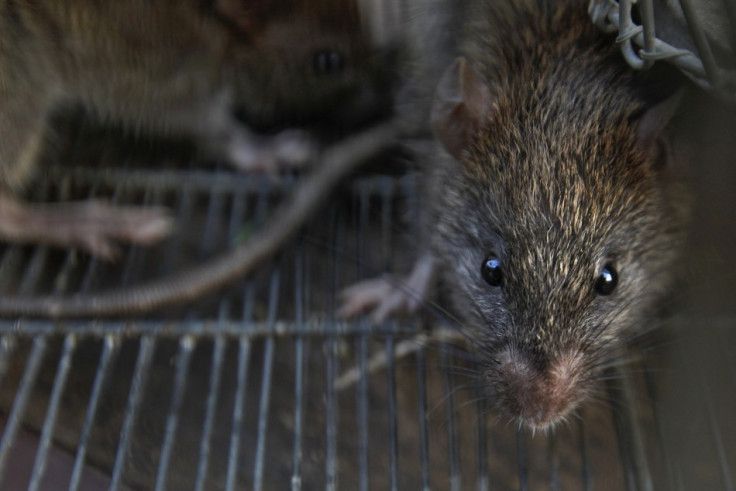Mutant Rats Plague Southern England as Poisons Fail

Councillors in the Home Counties have requested permission to use stronger poisons against a new form of 'super rats' which have plagued the area.
Families in Berkshire, Oxford and Hampshire have become worried about the new "genetically-mutated" brown rat which is resistant to normal poisons and West Berkshire Council is requesting a change in the rules in how rodenticide is used.
The recent flooding across many parts of the UK has forced the 'super rats' out of the sewers.
Graham Chappell, from Rapid Pest Control in Newbury, who is contracted by West Berkshire Council, said: "It's becoming more of an issue now simply because of the number of rats that are being seen.
"They've also mutated genetically and are bred to be immune to standard poisons.
"We have to start using different methods such as trapping and gassing, which can be less effective and more costly."
Rats carry diseases which can be life-threatening if transmitted to humans, such as Weil's disease.
West Berkshire Council has now requested to the Health and Safety Executive for permission to use stronger rodenticides, Brodifacoum and Flocoumafen, currently limited to indoor only, to help tackle the problem.
Brodifacoum has been used in the US and parts of Europe for more than a decade and rats have yet to develop a resistance to it.
But Jeff Knott, of the RSPB, opposes suggestions to use stronger poison. He said: "The risk to wildlife by the use of rodenticides is very real, particularly to animals which eat rats such as birds of prey and barn owls.
"Rat control is necessary but the RSPB does not believe that the answer is the licensing of more and more toxic poisons.
"The more poisons we use, the more resistant rats will become to them. The answer is firstly prevention and then other control methods such as trapping and shooting."
Richard Moseley, a technical manager with the British Pest Control Association, added: "Tons and tons of poison are being used to little effect.
"In terms of the threat to wildlife, it would be a lot better if new poisons which actually work could be used as a much smaller amount of them would be needed.
"Rats are very intelligent and would soon become behaviourally resistant to traps."
A spokesman for the Health and Safety Executive said pest controllers in West Berkshire had previously applied to use stronger poisons outside but withdrew their application after they were told to monitor other wildlife to see if it would poison them too.
© Copyright IBTimes 2025. All rights reserved.




















